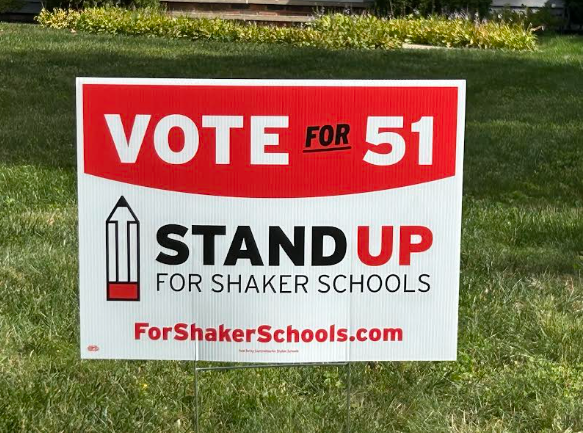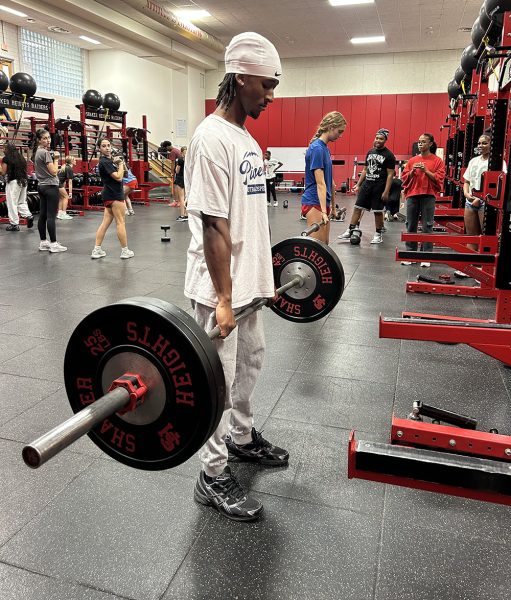Eradicating the Kids’ Table, One Article at a Time
News platforms fit into hands of younger generations
I’ve developed a shield of indifference against the irritatingly prejudiced jokes hurled my way by adults making halfhearted attempts to understand my generation. A few years ago, that crack about Twittergram Facechat would’ve been tolerated, because social media was only a big deal on mobile phones.
Now, I could be reading about the Syrian refugee crisis or educating myself before a presidential debate.
As paperboys and the comic section take a backseat to modernized, technological news platforms, the younger generations inch further and further into “the know.”
The tech evolution of news began almost two decades ago, when the first whisperings of web editions tickled journalists’ brains.
As the Internet concept became more inviting, so did the idea of online newspapers replacing thick, tree-killing papers. The New York Times, Washington Post and Plain Dealer all added a “dot com” to their famous flags.
Next came the exclusive websites that shrank the news like Alice in Wonderland’s magical cake. These sites skipped the paper trail and headed straight for the screens.
Their articles are accessible from all devices, inviting a younger generation of readers with their pocket technology.
Another online perk: briefer news delivery.
Website articles are often more succinct than multi-page paper masterpieces.
TheSkimm, an email newsletter that sends current events into my mailbox daily, informs me of worldwide news in less than five minutes. Not only is the length great for my groggy morning bedhead, but TheSkimm also uses a more informal, comedic tone to hold my attention.
If their witty appetizers aren’t enough for my journalistic hunger, they offer links to full-length entrees as well.
Buzzfeed has also mastered the art of entertaining news delivery.
Mixed amongst nonsensical quizzes and silly videos are serious, hard-hitting news articles.
Whether kids mean to or not, they’re immersing themselves further into the news world, blurring the thin line between adult and child.
Not only does it feel like my generation is more educated about the world around them, but it feels like there’s more that we can do about the problems within it.
Raising awareness for anything, be it Lou Gehrig’s Disease or poaching in Africa, takes a tap of the thumb these days. In less than a second, I can retweet an online petition regarding gun laws or post a Disney photo on Instagram to raise awareness of childhood cancer.
Some critics call this “slacktivism,” claiming a few trending hashtags will do nothing to solve the world’s problems – but if the Ice Bucket Challenge is any proof, those critics are wrong. Millions of ice buckets poured on heads led to $113 million for Lou Gehrig’s Disease (ALS) research.
Not every problem will be solved by some teens and their cell phones, nor should a retweet be the most a person does to solve them.
If I didn’t have Instagram – yes, the same social media that is thought to be distracting in class – I wouldn’t know a thing about Lou Gehrig’s Disease, Cecil the Lion or any other controversial current event. If it weren’t for my daily Skimm newsletter, I wouldn’t be as curious and educated about world events.
If it weren’t for the Buzzfeed links on my Twitter timeline, I might be a few steps out of the loop.
It’s because of these accessible news platforms that I’m able to hold my own in a conversation with adults. That’s right: the line between adult and teen conversation has been blurred. Every article I read is one more step away from the kid’s table. As I become more educated, I’m able to form my own opinions about mature topics. If used correctly, phones can be a great source of information. The more time I spend scrolling through digital news, the closer I feel to adulthood.
However, I’ll admit this to the teachers who have told me to put my phone away in class: there’s a good chance I was playing solitaire or messing with the new Snapchat filters during that lecture. That doesn’t mean my generation should be underestimated, but I am in high school, after all.
I might need some Angry Birds from time to time. Nobody’s perfect.



